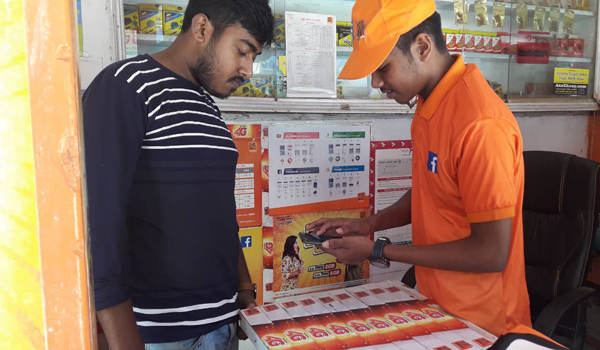A digital literacy pilot program jointly conductedby Banglalink and the GSMAin the areas inhabited by people with relatively low digital literacy has witnessed a significant impact of digital skills training on adoption of internet services. Conducted over a three-month period, the pilot program was aimed at providing customers with basic digital literacy training and then assessinghow they used mobile internet.
Under the program, Banglalink Sales and Service Point (BSSP) sales agents in selected areas were trained so that they could offer the basic internet training to customers having no or low digital literacy using the Mobile Internet Skills Training Toolkit (MISTT), a guide developed by the GSMA (the global mobile industry association)Connected Society program. The toolkit helps a trainer demonstrate how to use common applications (e.g. WhatsApp, Google and Facebook), keep track of data consumption and ensure safe use of internet on mobile phones.
A total of 117,000 customers received training from 3,200 BSSP sales agents. Analysis revealed that after the pilot program, mobile internet use increased by 228% among the trained customers, while the overall growth in data use in Banglalink’s network was 59% during the same period. Moreover, among the participants,19% of the total non-data usersand 15% of the total occasional usersbecame regular data users after the training. It was also found that 28.5% of the total regular users,who participated in this program, increased their data-use significantly. For details about the program and findings, please visit: https://bit.ly/2S4OqUV.
Erik Aas, Chief Executive Officer, Banglalink said, “Bangladesh has undoubtedlymade tremendous technological advancement over the years, but in order to materialize the vision of a truly digital country, it is necessary to make sure that people from every sphere of the society have access to digital facilities. Such a joint-initiative can play a vital role in this respect by enhancing people’s digital skills through the application of effective learning methodologies. The statistical findings clearly show that such learning facilities can significantly drive adoption of digital services among the targeted groups.”
Claire Sibthorpe, Head of Connected Women and Connected Society, GSMA, “MISTT was developed to support digital literacy initiatives in countrieslike Bangladesh, where low levels of basic digital literacy is a key barrier to mobile internet adoption.Mobile internet connectivity brings a wide range of social and economic benefits and we are pleased to work with Banglalink on this initiative to advance digital inclusion in Bangladesh.”
Banglalink will continue to play a pioneering role in digitalizing the country through similar initiatives in future as well.

